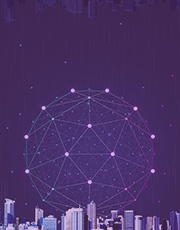< Key Hightlight >
The Internet of Things, or IoT, describes the use of connected sensors and actuators to control and monitor the environment, the things that move within it, and the people that act within it. Use cases include the automated home, the connected car, wearable technology, the automated home, smart cities, and predictive maintenance for industrial machinery.
Scope
This report provides an overview of the Internet of Things (IoT) theme.
It identifies the key trends impacting growth of the theme over the next 12 to 24 months, split into three categories: technology trends, macroeconomic trends, and regulatory trends.
It contains a comprehensive industry analysis, including market size and growth forecasts for both enterprise and consumer IoT, details of M&A deals driven by the IoT theme, and analysis of patent trends.
The detailed value chain shows comprises five layers: devices, connectivity, data, apps, and services. Leading and challenging vendors are identified across each of the five layers.
Key Highlights
For IoT technology to become truly pervasive, two things need to happen: latency levels need to drop to allow real-time decision making, and IoT deployments need to operate more autonomously. Advances in data center technology are already pushing more intelligence to the edge of data networks, reducing latency, while Artificial Intelligence of Things (AIoT) technology is gradually reducing the role of human decision-making in many IoT ecosystems.
Pervasive IoT will become closer to reality as AIoT and edge computing – both nascent technologies – mature, perhaps in a decade or so for markets such as autonomous trucks.
From a wearable fitness tracker to a smart speaker at home, from a connected car to a smart building, and from advanced automation to asset tracking, IoT plays a role in every aspect of life in every industry. COVID-19 has highlighted the crucial role the IoT has come to play in our lives. Many traditional use-cases like smart city projects were put on hold as businesses coped with the pandemic-driven economic slowdown and governments reprioritized budgets in response to the health crisis. By contrast, several IoT use cases saw growing adoption during the pandemic, such as using connected thermal cameras to detect potential COVID-19 infections and sensors for monitoring office occupancy levels. The demand for technologies that can help the workforce get safely back to work is rising and will likely continue to grow. IoT applications such as contact tracing devices and health-monitoring wearables provide critical data to help fight the pandemic.
Historically, much of the actual value of IoT came from industrial applications. This is not the flashy multicolored world of the automated home. It’s the domain of grimy factory machines. Currently, the consumer IoT market is beginning to take off. More than 5 billion consumers own a smartphone. We expect spending on wearable technology to increase from $59bn in 2020 to $156bn by 2024. Penetration of automated home technology is rising too, with our forecasts for spending on the automated home rising from $66bn in 2020 to $93bn by 2024.
The next phase of IoT has the potential to transform how we live and work. As IoT penetration extends to the point of being pervasive, entirely new business models will emerge. IoT networks will even do business with one another, providing services resulting from autonomous, or near-autonomous, collaboration. IoT enabled factories could operate with far greater efficiency and flexibility. Farms could increase productivity and improve sustainability. Cities could optimize their use of resources and offer residents all kinds of new services at a lower cost. To make these new IoT ecosystems more intelligent and communicative and reduce the human-machine gap, connected things will be embedded with AI capabilities.
Reasons to buy
We forecast the global IoT market to reach $1.1 trillion in revenue by 2024. Enterprise IoT will account for 73% of market revenue by 2024, down from 76% in 2020, while the consumer segment will make up 27% in 2024, up from 24% in 2020, with significant growth coming from wearables. In a post-COVID-19 world, we expect a new wave of digital transformation to fuel higher growth across all IoT markets.
This report includes a comprehensive technology briefing, which identifies five major IoT markets (automated home, connected car, wearable technology, smart cities, and Industrial Internet). It also discusses key enabling technologies for IoT, including AI, cloud computing, 5G, and cybersecurity, and analyzes the four stages of IoT development.
As well as market forecasts for the global IoT market, this report also includes forecasts to 2024 for consumer and enterprise IoT, and the five major IoT markets.
The value chain identifies leading vendors and notable challengers across all layers, including devices, connectivity, data, and apps.
Companies mentioned
AAC Technologies
Accenture
Accton
Actifio
ADT
Akamai
Alarm.com
Alibaba
Alphabet
Alps Electric
Alteryx
Altibase
Amazon
Ambarella
AMD
AMS
Analog Devices
Apple
Arcadia Data
Arista Networks
Arm
Armis
Arup
AT&T
Atkins
Atos
Attivio
Audi
BAE Systems
Baidu
Bentley Systems
Bharti Airtel
BigPanda
Black & Veatch
BMC Software
BMW
Boeing
Bosch
Broadcom
BT Group
C3.ai
Canon
Capgemini
Celestica
Check Point Software
Chicony
China Mobile
China Telecom
China Unicom
Ciena
Cisco
Citrix Systems
Cloudera
Cognex
Cognizant
Comcast
Continental
Control4
Couchbase
CrowdStrike
Daimler
Darktrace
Dassault Systèmes
Data Virtuality
Dataiku
Datameer
DataRobot
DataStax
DataTorrent
DataVirtuality
Dell Technologies
Deloitte
Delphix
Denodo Technologies
Denso
Deutsche Telekom
Didi Chuxing
DJI
Domo
Dundas
DXC Technologies
EnterpriseDB
Equinix
Ericsson
Exago
Exasol
Exeros Technologies
Extreme Networks
F5 Networks
Facebook
FICO
FireEye
Floow
Fortinet
Fujifilm
Fujitsu
Gafcon
Garmin
GE
Geely
Genpact
Geotab
Goertek
Google
GoPro
HCL Technologies
Here Technologies
Hikvision
Hitachi
Hitachi Vantara
Holitech Technology
HollySys
Honeywell
HPE
HTC
Huawei
IBM
iFlytek
InetSoft
Infineon
Infor
Informatica
Information Builders
Infosys
INRIX
Inspur
Intel
JD.com
Juniper Networks
Kakao
Kanematsu
KDDI
Keboola
Keyence
KNIME
Knowles
Konica Minolta
KT
Kyvos
Largan Precision
Leadspace
Lenovo
LG Electronics
LG Innotek
Libelium
Link Labs
Lite-On
Lockheed Martin
Lumen Technologies
Lytx
MapR (HPE)
MarkLogic
McAfee
McKinsey
MediaTek
Microchip
Microsoft
MicroStrategy
MiTAC
Mix Telematics
Mobileye
Mobvoi
MongoDB
Mott McDonald




